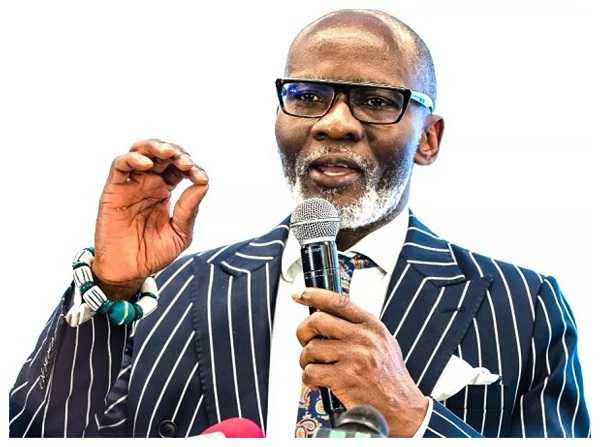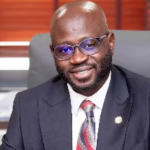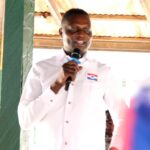ACCRA – For decades, it has been a familiar script at the United Nations General Assembly (UNGA). African leaders take the podium to eloquently, and rightly, argue for a fundamental reform of the UN Security Council (UNSC).
They point to the glaring anachronism of a global governance structure frozen in 1945, which denies a continent of 1.5 billion people a permanent seat at the table where the world’s most critical peace and security decisions are made.
This week, the call was renewed. But we have heard it before, from the towering vision of Nelson Mandela to the persistent advocacy of former leaders like Thabo Mbeki (2005), Olusegun Obasanjo, Muhammadu Buhari (2016 and 2021), John Agyekum Kufuor (2003 and 2005), Paul Kagame (2018), Macky Sall (2022), Nana Akufo-Addo (2017, 2023 and 2024), Abdel Fattahbel-Sisi (2020), and equally strong current voices across the continent like John Mahama and William Ruto (2024 and 2025) and many others.
The argument is unimpeachable: Africa’s challenges are central to the UNSC’s agenda, yet its solutions are peripheral to the Council’s deliberations.
The most definitive African position on this matter was crystallised 20 years ago in the Ezulwini Consensus of 2005. Adopted by the African Union (AU), this landmark agreement was not a rrequest5 but a principled demand.
It stated unequivocally that Africa must have “at least two permanent seats” on the UNSC,a with all the privileges thereof, including the veto power. It also demanded five non-permanent seats. The Ezulwini Consensus was Africa speaking with one voice, presenting a unified, non-negotiable framework for a more equitable world.
Twenty years on, what has been the outcome? A resounding silence. The issue has been “considered” in various UN-led dialogues and intergovernmental negotiations, which have become a graveyard for ambition.
Discussions are perpetually stalled by the self-interest of the existing P5 (the five permanent members), who speak of reform while fiercely protecting their privilege. The process is designed to achieve nothing, and it has succeeded spectacularly.
Even a glimmer of hope, like President Joe Biden’s 2023 UNGA address where he welcomed the idea of a permanent African seat, has led to precisely nothing. It was a welcome sentiment, but without a concrete, binding roadmap, it remains just that—a sentiment. Our hopes, once again, were materialised into empty air.
So, 20 years after Ezulwini, the question is not just “what do we want?” but “what is our strategy for being heard to the point of action?” Reforming the Security Council requires (1) a two-thirds majority vote (article 108 of the UN Charter), after ratification by two-thirds of all UN members, crucially, all five Permanent Members of the Security Council (US, UK, France, Russia, China) must also ratify. Europe with 9% of the world population has three seats, but Africa and India with 18% each have none.
It is time for a radical shift. The current path of annual, dignified appeals followed by total disregard is a cycle of diplomatic futility. It diminishes Africa’s standing and normalises our exclusion. Therefore, I propose a clear and consequential course of action:
The Chairperson of the AU Commission must table a motion at the upcoming February 2026 Assembly of Heads of State and Government in Addis Ababa. This motion should outline a simple ultimatum: if by the 80th UNGA in September 2025, there is no credible, time-bound process for Security Council reform incorporating the Ezulwini demands, then the African Union will call for a collective boycott of the UNGA in 2026.
Why a boycott?
1. It’s a time-tested Legitimate Political Tool: A boycott is neither withdrawal nor an act of isolation; it is a statement of high principle. A powerful political statement of discontent. It screams, “This system is so fundamentally unjust that our participation in its main theatre legitimises its illegitimacy.”
2. It Forces a Reckoning: The absence of 55 voices—over a quarter of UN membership—would create a palpable void, turning the Assembly hall into a theatre of ultimate hypocrisy. All apologies to the public servants who will miss an opportunity to shop on 5th Avenue. Empty seats speak louder than ignored speeches. It would force the world to confront the cost of inaction.
3. It Demonstrates Ultimate Unity: A successfully coordinated boycott would be the ultimate strategic demonstration of the Ezulwini Consensus in action. It would prove that Africa can move beyond rhetoric and act together when the stakes demand it.
Why does Africa need a permanent seat?
The case is overwhelming. Africa is not just a subject of international security; it is a central actor. It is the site of most UN peacekeeping missions, the region most vulnerable to climate change—a key security threat—and home to the world’s youngest population, representing the future.
About 28% of all UN member states (more than a quarter of the entire UN) are African . A security architecture that excludes its permanent representation is not only unfair; it is ineffective, illegitimate, and blind to 21st-century realities. Our presence would bring indispensable context, lived experience, and legitimacy to the Council’s work.
The point of going to New York every year cannot simply be to be ignored. The time for polite requests is over. The Ezulwini Consensus was our homework, done meticulously 20 years ago. The world has failed its exam.
Let us use the 20th anniversary of this consensus not for lamentation, but for decisive action. Let us tell the world: Include us, or we will no longer pretend that this charade of equality is acceptable.
An empty chair in 2026 would speak louder than words have for the past 80 years. Let our empty chairs at UNGA 2026 echo this truth: “Until Africa too has a veto, this united nations remains incomplete.”
Let me end with the words of Kwame Nkrumah: “Divided we are weak; united, Africa could become one of the greatest forces for good in the world.”
Gabby Asare Otchere-Darko
The author, a Pan-African thought leader, is the Founder and Executive Chairman of Africa Prosperity Network (organisers of the annual Africa Prosperity Dialogues, Accra, and the Global Africa Forum, New York) , and Senior Partner of Africa Legal Associates (ALPi Ghana).




